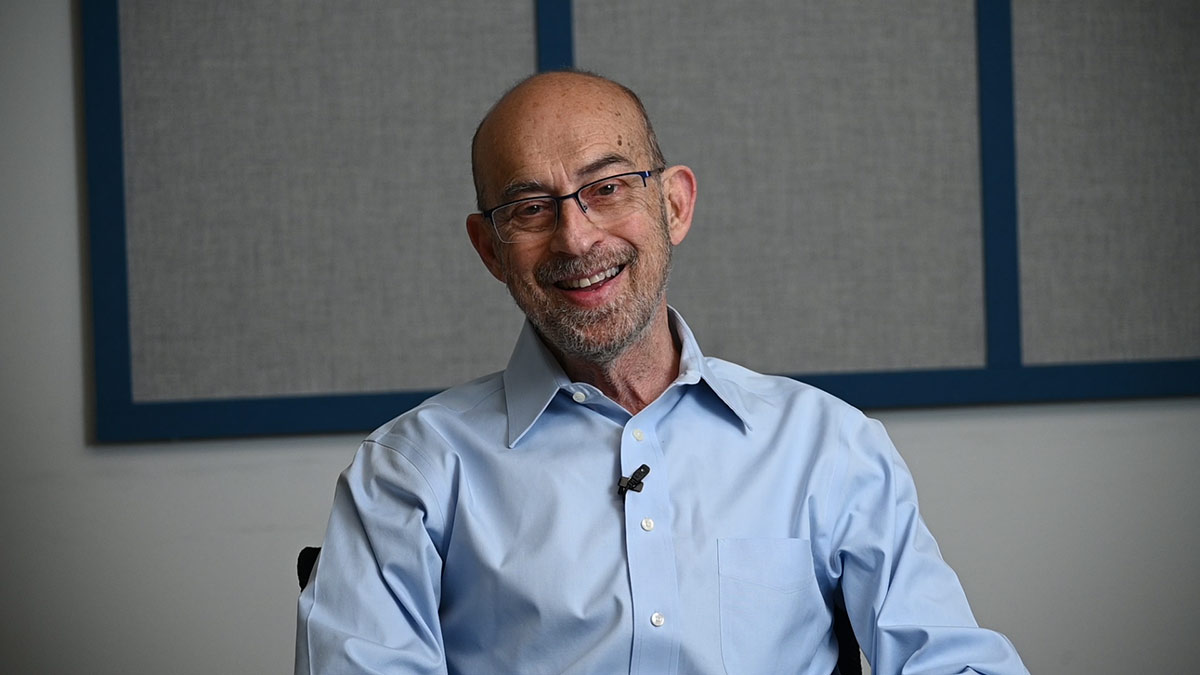Can Technology Help Your Access to Medication?

Being able to see your doctor or get medications can be challenging for some patients. Steven Nissen, MD, Chief Academic Officer for Cleveland Clinic Heart, Vascular & Thoracic Institute, talks about how in the future there may be a way to help get medications to those in need. Before a process like this is available, it must be proven safe.
Learn more about the Preventive Cardiology & Rehabilitation Section at Cleveland Clinic.
See more videos for Coronary Artery Disease & Treatments
Subscribe: Apple Podcasts | Buzzsprout | Spotify
Can Technology Help Your Access to Medication?
Podcast Transcript
Announcer:
Welcome to Love Your Heart, brought to you by Cleveland Clinic's Sydell and Arnold Miller Heart, Vascular & Thoracic Institute. These podcasts will help you learn more about your heart, thoracic, and vascular systems, ways to stay healthy and information about diseases and treatment options. Enjoy.
Steven Nissen, MD:
I'm Dr. Steve Nissen and I'm a cardiologist at the Cleveland Clinic. And I'd like to talk to you about a recent publication that we had about a new approach to non-prescription statins. Now, please keep in mind that there have been five previous efforts to get approval from the FDA for over-the-counter statins. And all of them were rejected by the FDA at various stages of development. And the problem is that the people who wanted to take statins over-the-counter were what we call the worried well. They were people who really didn't have a good indication for statins, but they wanted to protect themselves somehow. And it just didn't work out because the wrong people were getting the medications.
Steven Nissen, MD:
So, what did we do? Working with AstraZeneca, we have developed a web app. We call this technology-assisted self-selection for statins. And the drug we chose was a very small dose, the five-milligram dose of Rosuvastatin.
Steven Nissen, MD:
Five milligrams of Rosuvastatin is actually pretty effective, it lowers LDL cholesterol by about 40%. And the way it works with this app is a patient is directed to go online and they fill out all the information that's part of the ACC/AHA Risk Calculator. The program then calculates their risk and determines whether they meet the eligibility criteria to get a statin, a modern intensity statin and whether they have no contraindications to a statin.
Steven Nissen, MD:
If they meet those criteria, then they're deemed eligible for a statin and the idea of this program is that then the drug will be directly shipped to their home. They won't go into a pharmacy and buy it and every 90 days they can renew it.
Steven Nissen, MD:
Now, why do this? We know that about half the people that should be taking statins, that are eligible by the current guidelines are actually not on the drugs. That costs a lot of lives and a lot of heart attacks and a lot of strokes.
Steven Nissen, MD:
We thought it made sense to create wider availability of a statin. In this case, Rosuvastatin, by using a screening program that rejects people who should not take the drug and accepts people who should. We tested this approach in a 500 patient trial, which was published just recently in the Journal of the American College of Cardiology, and well over 95% of the time, the program and the patient got the right answer compared with a clinician's assessment of whether or not they were eligible to take a statin. No other effort at non-prescription statins has come anywhere near this level of precision.
Steven Nissen, MD:
And so, we think we have the right approach. We're going to go forward with the development and we hope that we can make these drugs more widely available to people that have less accessibility. Imagine somebody that's in rural Montana where the nearest physician is a long way away. There are lots of people, people in the inner city that have less access to healthcare, where having non-prescription access to statins could be really important and we're going to go forward with the development of this. Thank you for your attention.
Announcer:
Thank you for listening. We hope you enjoyed the podcast. We welcome your comments and feedback. Please contact us at heart@ccf.org. Like what you heard? Subscribe wherever you get your podcasts or listen at clevelandclinic.org/loveyourheartpodcast.

Love Your Heart
A Cleveland Clinic podcast to help you learn more about heart and vascular disease and conditions affecting your chest. We explore prevention, diagnostic tests, medical and surgical treatments, new innovations and more.


